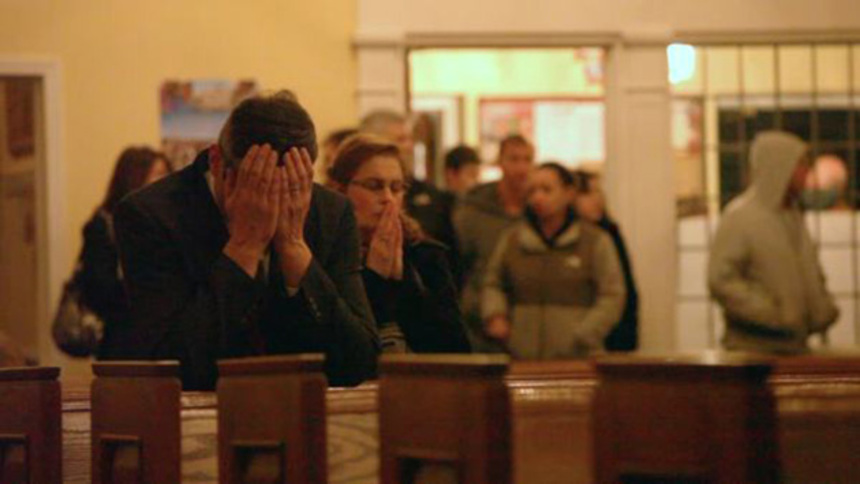Sundance 2016 Review: NEWTOWN, A Simple Tale Of Universal Grief

The horror of what took place on December 14, 2012 at Sandy Hook elementary school captured the world's attention. A young man, armed with an assault rifle, handgun and plenty of ammunition, walked through his old school and butchered 20 students and six faculty members.
The community of Newtown, Connecticut, an affluent community with stately homes some 60 miles away from New York City, was thrown into an uproar. TV cameras captured grieving families, and the conversation about mental health, gun ownership and all other factors surrounding the Second Amendment became the focus for weeks. For some the conversation quickly was forgotten, for others, like President Obama, the stark images of what happened at that school continue to drive his agenda, with the recent announcement of his executive orders to try and provide closure of loopholes, explicitly referencing the murder of these kids, eliciting uncharacteristic tears from the normally more staid leader.
The documentary, Newtown, has a lot of heavy lifting to do, both in terms of its contribution to the historic narrative but also as a standalone piece of cinema. Countless articles and programmes have been devoted to the story, but what sets this film apart is how it uses select family members to tell the tale, with viewers witnessing their grieving process taking place years later.
The families refer to the events as "12/14", echoing a similar national tragedy in 2001 where the date has become synonymous with the death. We are granted at times astonishing intimacy to certain family members, their pain and process being spelled out for the cameras. Yet director Kim Snyder avoids sensationalising the pain, often keeping a distance and letting the subjects determine the pace of a given scene.
Newtown is a film about absence. Explicitly, it's about the loss of these kids, and parents still trying to make some sense of it all. It's also notable as to what it chooses not to show. The name of the perpetrator is never spoken, only seen briefly (and greyed out) on one of the documents being quoted. The film also refuses to go into details about the grisly shooting, at times hinting through testimony about what occurred, but never providing the journalistic facts of the events. We're meant to piece together what happened, meant to feel -- from the grief of those we're exposed to -- the horror of that day.
When one of the officers who showed up early on scene begins to describe what happened, he stops and says nobody should know what went on in that room. When another begins to describe what she saw, the film fades to black, cutting her off mid-thought. It's as if the film itself is shying away from the gore, all for the admirable reason that to focus on the tabloid sensationalism of it all does an injustice to the lives taken away.
Yet other elements are also absent. Conflicts between the family members are overlooked, and while we see some of our hero parents participating in gun legislation discussions, the other family members who also have been outspoken about the sanctity of the Second Amendment are simply left out. This may not be a film for this debate, but it's clear that a look at how the parents reacted to this situation should certainly shed a wider beam at the fullness of that reaction, including those that shockingly, for this international audience member, behaved in ways counter to expectation.
I have no doubt that the screening of this film will be a powerful, moving event for audiences as it makes its way through the festival circuit. The in-person attendance of family members will drive many to feel even more strongly for the work, and even the most cold hearted must be moved by the raw pain expressed on screen. Yet that's also a mask for what's so frustrating about the film, the way that it uses this raw emotionality throughout to the detriment of a more holistic examination of the events.
This is an event that's demanding of a truly piercing, reflective
documentary that showcases as many of the facets of the events as it
can, and this film
is certainly not that one. Newtown is, perhaps to
its credit, less ambitious than that. It tells a simple tale of
universal grief, a phase
of mourning that allows certain key family members, neighbours and
first responders a first chance in this form to speak about their
heartbreak. Yet since it's a film about what's missing, I feel the
absences of craft more acutely because of that fact. More works
will come, more tragedies will unfold that need similar examination.
I may fault Newtown as a documentary film
for lacking in the grit and
complexity I hoped for, but can applaud it for its
sensitivity and presentation of the specific stories it chose to tell.







